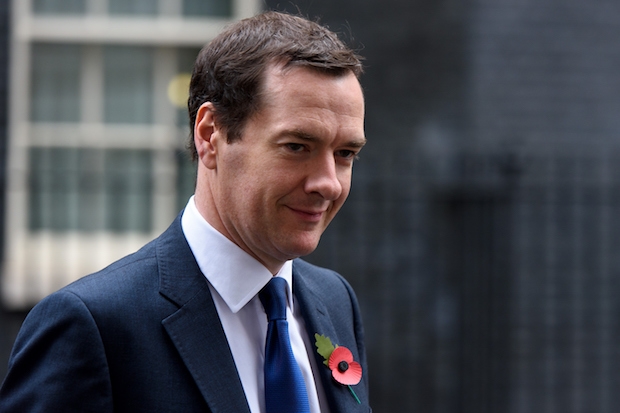The government needs to get thinking quickly about a new tax credits proposal that is acceptable to the Commons and the Lords. George Osborne will deliver his Autumn Statement in four weeks’ time and he has promised to outline the results of his ‘listening’ exercise. This afternoon’s debate on a backbench motion about the cuts showed that Conservatives support phasing out tax credits, but the main concerns expressed were over the speed of the transition. Notably, 20 Tory MPs supported the Labour motion criticising the cuts — including Bernard Jenkin, Jacob Rees-Mogg and Heidi Allen.
According to a report in the Guardian, Osborne has given himself ‘wiggle room’ in his deficit reduction plan so he can ensure a ‘lessening’ of the impact. The same article reports that he is expected to focus on the introduction of a National Living Wage in April 2017 and how workers can be assisted in the transition period. Frank Field, the Labour chair of the work and pensions select committee, has several ideas for mitigating the tax credit cuts:
- Introducing a new income threshold of £13,000. Field proposed this on his blog a few weeks ago. This proposal would retain the existing threshold of £6,420 for receiving tax credits and introducing a new one at £13,100 — the equivalent of working 35 hours a week on the National Living Wage. Working families, according to Field, would receive no reduction in tax credits during the transition period over to the NLW. It’s a cost natural proposal, as there would be a higher withdrawal rate on the credits for those earning above the £13k threshold.
- Introduce the tax credit changes gradually over the next five years. Field explained earlier this week ‘you keep the proposals as they are but you phase them in, so you don’t get your full savings until the very end of the Parliament instead of delivering the £4 billion+ next April’.
- Introduce changes in April 2016 for new claimants only: This would allow existing claimants to continue as now . At this afternoon’s Commons debate, there was a consensus across both parties that the cuts shouldn’t all go ahead next April. At present, this proposal appears to be the most popular one among Tory MPs for mitigating the cuts.
But Field believes there is a ‘real lack of data’ about tax credits and the impact of these solutions is hard to predict. He argues that the Treasury is unable to say how much of a hit it would take by introducing the changes purely for new claimants or introducing the cuts gradually. If this is true, any of these options will essentially be a stab in the dark.
Another idea being discussed in Conservative circles is raising the National Insurance threshold. People on low incomes have been taken out of income tax but not NI and some in the party believe it would be a dramatic move to show the government cares about low paid workers. But would be costly and affect everyone — not just those receiving tax credits. One option is to limit it to those on low earnings. It is likely that new funds will need to be raised to fund these proposals. One idea Isabel reported is to add a penny to fuel duty, another is to look again at a sugar tax.
There is also the option that the government could kill of the cuts entirely and find some other way to save £4 billion. But given how much political capital has been wasted on the cuts — and the broad support in the Tory party for reform — this seems unlikely.
There is a consensus among Conservative MPs that the Chancellor won’t be following either suggestions the House of Lords backed: delaying the introduction of the cuts till three years time — or responding to analysis from the IFS and laying out ‘mitigating action’. Given the review into House of Lords’ power — which will be completed by Christmas — Osborne will be keen to put the Lords in its place by ignoring its suggestions. If, as some MPs expect, the government will formalise the Lords’ constitutional role over finance matters, Osborne will be chiefly concerned about what the Tory backbenches are thinking. Right now, there appears to be no consensus in the party about what is the right approach.






Comments